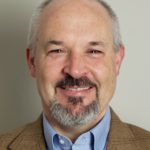Economics, defined
Inflation. Raising the minimum wage. Prescription drug price control. Recession.
Economics is a popular discussion topic these days. Ironically, while the word “economics” is spoken in nearly every quarter, the understanding of economics is difficult to find, including among those who seek to control our economy.
What is the definition of economics? Like so much of Western life, modern economic thought can be traced back to the Greeks in general and Aristotle in particular. According to the online Stanford Encyclopedia of Philosophy, Aristotle’s “unit of analysis was the oikos, or household, from which the word economy is derived.” At its most basic, the term “economics” can be traced back to the Greek word oikonomia, or household management, a term which referred to the managing of household needs and the available resources to meet those needs. Through the progress of time, the study of economics was given more and more thought, developing into the discipline of “political economy” from the Enlightenment until the 19th Century, when it was increasingly shortened to the term we are familiar with today. In 1932, British Economist Sir Lionel Robbins wrote what is now considered to be the standard definition of modern economics: “Economics is the science which studies human behavior as a relationship between ends and scarce means which have alternative uses.”
Or, to put it plainly, economics is, according to economist, investor, and author David Bahnsen, “the study of human action around the allocation of scarce resources.” This shortened definition highlights the two components at the heart of the discipline: human beings who possess a measure of agency over their environment, and resources that do not exist in unlimited supply. Thus, economics examines, but does not provide a definitive answer to, the question: how do humans, both individually and in groups, allocate their resources – time, talent, treasure, etc. – when those resources are insufficient to meet every need or desire?
The orthodox Christian economist will go one step further, understanding that while humans have limited agency, they are also inherently evil and will make choices out of a heart that seeks its own pleasure or good above all others. Does the depravity of man influence the ways in which resources are allocated? If so, in what ways? Lastly, and most importantly to the believer: does the existence of God have any bearing on a subject that is so exclusively associated with this present age?
Quid deinde fit?
The God of Economics
There was once a time when no need for economics existed because there was no scarcity of resources: the period before the Fall. In the words of the inimitable economist Thomas Sowell, “The Garden of Eden was a system for the production and distribution of goods and services, but it was not an economy, because everything was available in unlimited abundance. Without scarcity, there is no need to economize – and therefore no economics” (Basic Economics, 2007). Yet as with any action, there are unintended consequences, and in this case one of the unintended consequences of Adam’s sin was the limitation of supply/resources. No longer would everything be available in abundance. Now, priorities would have to be made in the allocation of resources, and opportunity costs realized (an opportunity cost is defined as “the value of the next-best alternative when a decision is made; it’s what is given up”). What was the result?
The ground produced thorns and thistles; painful toil was, and is, required to produce goods with which mankind can barter to meet its needs; and the sweat of the brow became the price of existence. Everyone, whether rich or poor, faced a shortage of resources. What then? Does the Bible address such matters? Yes it does: “Though the fig tree does not bud and there are no grapes on the vines, though the olive crop fails and the fields produce no food, though there are no sheep in the pen and no cattle in the stalls, yet I will rejoice in the Lord, I will be joyful in God my Savior” (Habakkuk 3:17-18, NIV).
While life on this earth may be characterized by limitation and choice, the Christian recognizes the existence of, and ownership by, the God of the Bible. To our great comfort, this God is infinite: He exists outside creation, and therefore not limited by the Fall (1 Kings 8:27). Additionally, we joyfully recognize that He owns everything (Psalm 50:9-10) and is omnipotent, directing creation to accomplish His will (Psalm 115:3, Isaiah 14:24). What’s more, He is not only infinite and omnipotent, but omnibenevolent to His children in His administration, which is marked by love and grace on the account of Christ (Jeremiah 31:3, Romans 8:28). How can we not confess along with Saint Paul: If God is for us, who can be against us (Romans 8:31, NIV)?
We should remember that while economics is usually divorced from theology, that should not be the case for the believer. Our God is the owner of all resources, and the means and the ends of production. He created humanity with the capacity to work and labor. He created this world with the supply of resources. He equipped humanity with the knowledge and skills to take the raw resources – land, labor, capital, and enterprise – and, by utilizing means of production, transform them into a valuable good or service that can be contributed to the good of the individual and society.
Yes, He is God of economics, too.



No comments have been added.